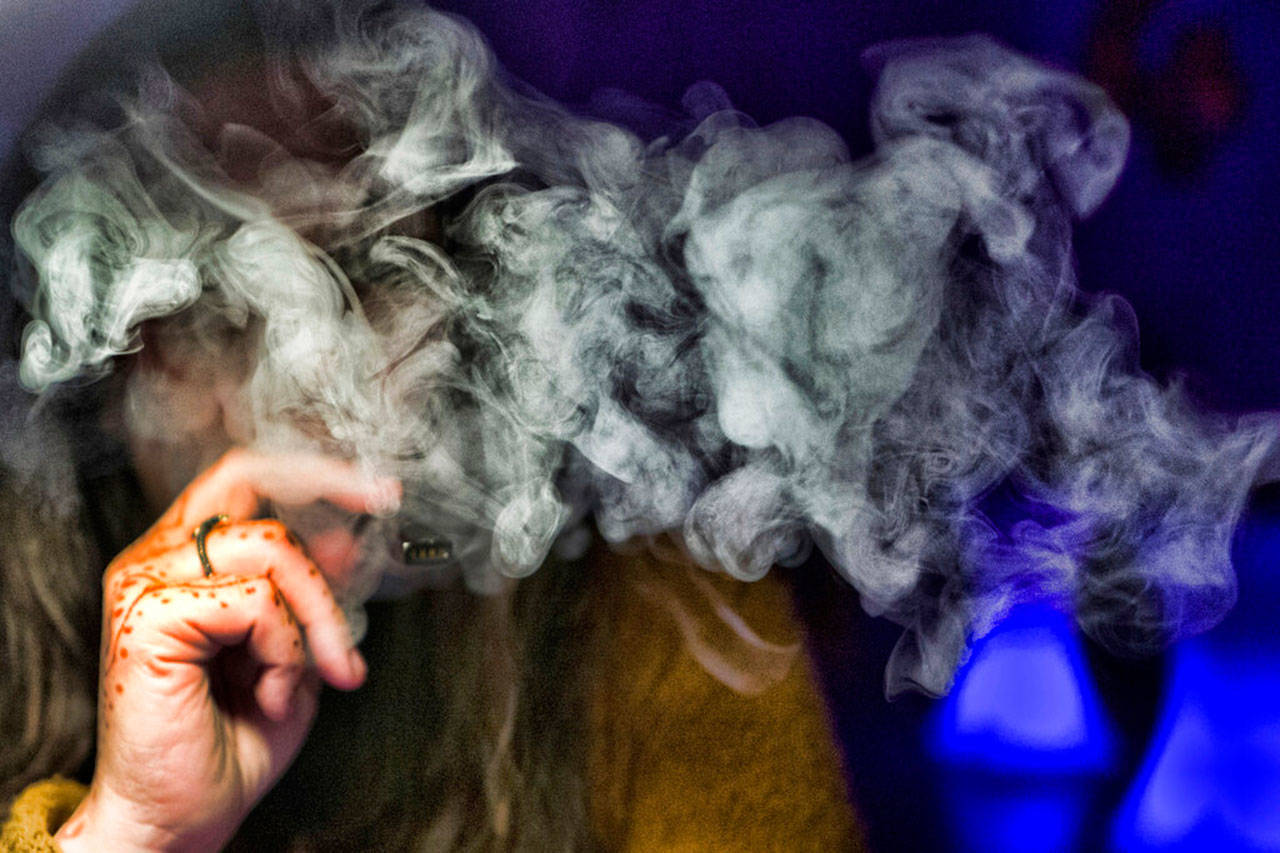By The Herald Editorial Board
Much of the attention on moves — first by the Trump administration, then by Washington Gov. Jay Inslee and officials in several other states — against e-cigarettes and vaping products has focused mostly on bans against the products’ fruit, mint, menthol and other flavors.
Those actions have come during an outbreak of pneumonia-like lung disease that nationwide number more than 800 cases and have resulted in more than 16 deaths in 13 states, according to the federal Centers for Disease Control and Prevention. At least seven cases of vaping-related lung illness have been reported to Washington state health officials, including one in Snohomish County.
While the CDC and others continue to investigate the outbreak and its causes, early reports related to illnesses in Illinois and Wisconsin found that about 87 percent of the patients had been using vaping products containing THC, the psychoactive compound derived from cannabis, the CDC reported. Most of the vaping products were sold as pre-filled cartridges, obtained from informal sources. Some initial reports have focused on a vitamin E oil used as an additive in vaping products containing THC.
That the use of flavors in most vaping products — used both in cartridges and liquids containing nicotine, THC or both — may not be related to the lung disease outbreak doesn’t make the pending ban on flavors any less necessary.
The actions, at least those outlined last week by Inslee for temporary action by two state agencies, address separate but pressing public health concerns: the illness outbreak and vaping among youths.
The temporary flavor ban, for which the state Board of Health is expected to draft emergency rules at its Oct. 9 meeting, would help address the explosive growth in vaping by youths. While long touted as a smoking-cessation device, e-cigarette and vaping product makers have used teen-targeted flavors meant to mimic fruit, desserts, candy and more — paired with vaping’s supposedly less-harmful effects compared to smoking — to hook a new crop of consumers on nicotine.
The flavors and some social-network marketing did their jobs. Recent data collected by federal health officials show that more than 1 in 4 high school students reported vaping this year, up from 1 in 5 in 2018. In Washington state, about 30 percent of 12th graders in a 2018 statewide survey said they vaped, up 10 percentage points from two years previous; among 10th graders, vaping increased to 21 percent from 13 percent; and among eighth graders, use increased to 10 percent up from 6 percent.
Importantly, the governor’s directive — intended as a placeholder until bills can be brought before the state Legislature when its session starts in January — call for more than the ban on flavors. Among several steps, Inslee also called for immediate action by the Department of Health to ban whatever products or ingredients are identified as the sources of the illness outbreak; requirements for vaping product makers to list all ingredients, solvents and additives used and their sources; and a vaping awareness and education campaign.
The executive order also directs the state Liquor and Cannabis Board to begin similar work to ban whatever vaping ingredient is behind the disease outbreak, require the makers of vaping products containing THC to disclose their ingredients and post warning notices in the states’ retail cannabis shops regarding the health risks of vaping.
Again, these actions are temporary stopgaps, good for 120 days, with the intention that the Legislature will adopt these requirements as state law.
While new laws are needed regarding all vaping products, with at least some limits on flavors, products containing THC warrant special attention. As cannabis remains illegal in the eyes of the federal government, the Food and Drug Administration will take no leadership to regulate products that contain THC. That agency already is dragging its feet to regulate conventional e-cigarettes; requirements for makers to submit their products for review and approval have been delayed until 2022.
That leaves it to state lawmakers to better regulate e-cigarettes and vaping products and at least allow those who choose to use them more information about what they are inhaling.
Talk to us
> Give us your news tips.
> Send us a letter to the editor.
> More Herald contact information.

























